#twelver
Text
Letters of the Imam of the Oppressed - Introduction
I am a queer Muslim dude who worships Allah as my God, considers the Prophet Muhammad his final true Messenger, and recognizes the final descendant of his viceregent Imam Ali, peace be upon him, as the Imam of the Time, the Imam in Occultation, the Imam of the Oppressed of the Earth, Imam Muhammad al-Mahdi peace be upon him. I was persuaded of this by rational argument: I saw the clear signs of God in the form of spiritual peace and happiness in the teachings of his students. The teachings of Hikma. The teachings of the Muslim Neoplatonists.
If you’re upset by any of that, fuck off and go home. Seriously. There are a billion other spaces for you in the Muslim community, you could really just use your time better. Personally, isn’t this a good time to read Surat ‘Al ‘Imran? It usually makes me feel better after a long day.
If you’re like…wait…tell me more…please, come in. I’d love to have you. There is a lot we need to talk about. As a queer Muslim man who left Islam in high school, I had internalized an inferiority complex formed by a combination of Sunni Neo-Traditionalist dawahganda, marketed to impressionable young faithful boys like me, and Orientalist polemics that had forced the dawahganda discussion into an utterly unsustainable apologist mythology that implodes the moment you investigate any real history on Islam. And yet I’m Muslim. I have very, very strong reasons for that. I do not accept God on blind faith, trust me. I’m a linguist, student of Arabic, raised by people from a Mahasi Sufi community located in southern el-Gezira: I love Islamic scripture. I am a practicing Muslim. Even as an atheist, I would pray occasionally. But I was disappointed, as such a practicing and spiritual Muslim, to see the utter spiritual impoverishment in the queer Muslim discourse as I had encountered it. But also having suffered from the consequences of growing up queer in an orthodox Muslim household, over the six years of nihilistic atheistic naturalism I’d built in high school, a profound sense of anger and disgust at the injustices I saw in my community. My father built the first Islamic center in our small town white Mormon and Christian community. My first Muslim role model. His dad was a high-ranking Sufi sheikh in the Sammaaniya tariga, extremely passionate about his faith, but extremely flexible in his doctrine. For him, Islam was about community. The tribe, and keeping it together.
My mother was equally religious, if not more so, as she leaned more on the Sunni Neo-Traditionalist side, and seems to be growing more and more conservative. I see this a lot in the Muslim-American community, and it worries me. Mostly because, you know, it’s actually a threat to my mental health and safety, and the solutions the Muslim-American community are currently proposing are absolutely insufficient. The typical progressive reformist arguments may persuade those for whom the specific inner workings of doctrine aren’t particularly important, but unfortunately for my parents, I was not one of those people.
I read Percy Jackson.
You see, Logan Lerman was my first boy crush. I saw the trailer and was obsessed with pictures of him for reasons I didn’t quite understand. I started with the third book, the only one available in the library. When it was revealed in the Heroes of Olympus that Nico also had a crush on Percy, as a Muslim, I was bothered. As an Orthodox Muslim something about Rick Riordan’s religious pluralism itched at my conscience: I remember distinctly at one point recognizing there was no difference between my relationship with Allah and the relationship many of the Percy Jackson characters had with their gods. I asked: how do I know Allah is any more real than Zeus?
Muslim parents are terrible at answering this question, Muslim-American parents even worse, because they fear for the future of their culture and see the youth adopting new, strange values, and it affects how they talk about Islam. It’s lead to one of the most soul-sucking doctrines that I ever dealt with in Sunni Islam, at least from my perspective: qadar. Fate. Destiny. Predestination. How does qadar actually work? Muslim polemicists love to mock the paradox of the Christian Trinity, but the paradox of qadar disturbed me far more in my youth, as somebody who was taught Islam is about the Garden or the Fire, doing the right things to get let into the house. But then there’s a problem.
What if God sees fit that you like a boy? What could the Lord of the Worlds have planned for you if his natural inclination is to turn you towards those of your sex and away from those of the opposite sex? I was always able to make easy friends with girls, by the time I was in high school the overwhelming majority of my friends were girls: at the time I didn’t understand why, but now I have a hypothesis. Perhaps there was something about me that made them feel safe. Perhaps it was my limited lack of actual sexual interest in them.
I don’t know. It’s not the point. The Qur’an tells you Allah is the most merciful, but if the most merciful sees fit that you have a natural inclination to what is one of the most blatant historical relics of medieval homophobia in the Uthmanic Bible (mushaf, meaning “bound in pages,” used as a guide for reciting the Qur’an – the Recitation – in prayer), you have to question this assumption. You end up on the bottom of a natural injustice in the social order, where there is complete invisibility and confusion, v.s. something like patriarchy or racism, which is simply just more visible. People always told me that, if I kept asking questions, I’d become an atheist. They were right, but there’s a reason I’m back. I didn’t become an atheist for intelligent reasons. I was coaxed out of Islam into the white supremacist cult that is American Neo-Atheism which is a source of endless cognitive dissonance when you’re also a gay Black Arab who also has Mahasi heritage, and thus a tight tribal link to an extremely old written culture. Tore me apart, but the mindset I’d been raised in as a Sunni Neo-Traditionalist had prohibited me from critical thought: I thought Islam was about salvation by faith alone. The parallel between this worldview and the equally spiritually impoverished worldview of white Evangelical Christians should be obvious, and it was a highway to a truly destructive lifestyle that lead me to have severe depression and totally incapacitated my ability to reach my life goals.
There’s a reason I’m very concerned about Andrew Tate’s conversion. I’m not worried about him – I could give a rat’s ass if his faith is sincere or not. His rhetoric is dangerous and reductive. But I was really worried about Mohammed Hijab. Genuinely. He was the kind of person I would’ve listened to as a teenager. Confident speaker. Handsome. Even crazier, Egyptian: lots of Sudanese people are invested in this inane Egyptian-Sudanese rivalry I only ever invoke in jest. But I’m a history nerd. That’s what you get for getting into the Riordanverse in your youth. I know my relationship with Egyptians: our ancestors have been drinking from the same river since time immemorial. The cultural lines between Nubia, where my Mahas ancestors hail from, and its neighboring ancient Egypt, were once so blurred as to make their cultures at times indistinguishable. Both countries then converted from polytheism to Orthodox Christianity – soon, to Islam. The cultural context Mohammed Hijab hails from and the cultural context I hail from, and the ideologies I developed as a teenager and the ideologies he still preaches, they’re unmistakably connected. Noticing these parallels brought me to some conclusions about how I’d come to see Islam that were further disabused by my discovery of the Western academic study of the Qur’an and Islam: I once feared it, but even when I left Islam, I never lost my interest in the history of the faith of my parents. I think of a comment by Hassan at-Turaabi my father would quote to prove at-Turaabi was no true Muslim: “do you not know the history of your religion?”
I didn’t. Knowing it made me see something entirely new. A fundamental shift in life perspective that led me to convert to Shi’i Islam out of a deep sense of personal calling. I am not a traditional Twelver, by any means: perhaps it’s more accurate to call me a non-denominational Muslim, the truest heretic. My reading of history led me to the conclusion that Imam Ali had the best claim to the caliphate: I did not reach this conclusion due to any blind faith in doctrines such as infallibility, which is an orthodox Islamic doctrine in both Sunni and Shi’i Islam that I fully reject. In the community of Islamic Neoplatonists, rather than have my faith used to beat me down and have my answers questioned with instructions to faith, they instead had a patient conversation with me where, through simple rational argumentation that I’d become so fond of as a high school debater, they persuaded me of the truth of their position. Isn’t that insane?
This is the truth of my Islam. I do not care if you consider it to be authentic or proper doctrine. Islam is not about doctrine to me. It’s about principles, values, developing the skills you need to survive in the world in any time and place. Sunni Neo-Traditionalism is not saalih for kulli zamaan wa makaan, and I firmly believe that, even if I respect Sunnism in concept.
But I will not accept it. I cannot accept such irrationality. So I will speak my truth, explain my thought process, my doctrine, inspired by the spirit of this verse in my mother’s favorite chapter of the Qur’an, the Song of the Stories (Q 28:1-6):
طسٓمٓ (1)
Ta Sin Mim.
تِلۡكَ ءَايَٰتُ ٱلۡكِتَٰبِ ٱلۡمُبِينِ (2)
These are the verses of the Record which makes things clear.
نَتۡلُواْ عَلَيۡكَ مِن نَّبَإِ مُوسَىٰ وَفِرۡعَوۡنَ بِٱلۡحَقِّ لِقَوۡمٖ يُؤۡمِنُونَ (3)
We narrate to you something of the Prophecy of Musa and Pharaoh in truth and justice, to a community of believers.
إِنَّ فِرۡعَوۡنَ عَلَا فِي ٱلۡأَرۡضِ وَجَعَلَ أَهۡلَهَا شِيَعٗا يَسۡتَضۡعِفُ طَآئِفَةٗ مِّنۡهُمۡ يُذَبِّحُ أَبۡنَآءَهُمۡ وَيَسۡتَحۡيِۦ نِسَآءَهُمۡۚ إِنَّهُۥ كَانَ مِنَ ٱلۡمُفۡسِدِينَ (4)
Indeed, Pharaoh seized great authority in the Earth, divided its people up into sects, slaughtering the sons of some of them, leaving their women to be assaulted; he was one of the corrupt.
وَنُرِيدُ أَن نَّمُنَّ عَلَى ٱلَّذِينَ ٱسۡتُضۡعِفُواْ فِي ٱلۡأَرۡضِ وَنَجۡعَلَهُمۡ أَئِمَّةٗ وَنَجۡعَلَهُمُ ٱلۡوَٰرِثِينَ (5)
We wish to comfort those who have been oppressed in the Earth, and make them Imams, leaders, and make them its inheritors.
وَنُمَكِّنَ لَهُمۡ فِي ٱلۡأَرۡضِ وَنُرِيَ فِرۡعَوۡنَ وَهَٰمَٰنَ وَجُنُودَهُمَا مِنۡهُم مَّا كَانُواْ يَحۡذَرُونَ (6)
We will raise them to a great station, to show Pharaoh and Haman, his right-hand man, and their soldiers the exact thing they used to fear.
These verses speak to me as a queer, Black, Muslim-American man, and they have motivated me to this. I believe in the God that sides with the oppressed in the Earth, and he has entrusted it in our care, and we have a duty to show the oppressors exactly what they used to fear. Welcome to the Letters of the Imam of the Oppressed, the mukhannath Slave of Allah, who sees in the story of his spiritual leader, the Imam in Occultation, the key to his liberation.
I will give interpretations of narratives from the Qur’an and hadith, as well as explain the doctrines of Islamic Neoplatonism as well as expose the radical historical and scientific fallacies being committed by the akh-right dawahbros. I do so pseudonymously, for the same reason the rightful heir to the position of the Prophet Muhammad remains in Occultation: my community faces violent oppression. I fear I may be targeted, but I will not leave my community without guidance. I feel the call to help lead the oppressed in the Earth.
Prepare to be shown the mercy of the exact thing you used to fear.
5 notes
·
View notes
Text
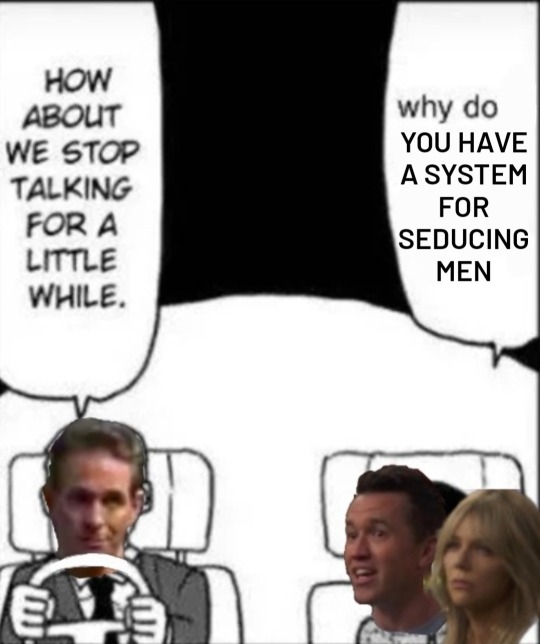
#I'm having feelings again. like some kind of season twelver#so much to unpack#non macden thoughts: I am so glad they're using devito again.... he's literally an A-list actor yet for the last few seasons#frank has done nothing but a few one-liners... it's good to see peepaw shine again ❤️#eating and spitting and swearing and beating birds to death.... et cetera#tbh everyone has kinda been out to pasture#I mean no of course standing in different locations and delivering washed up political opinions in your normal speaking voice is acting#go back to bed honey#anyway! wow. macdennis#feels like a good trade-off for the awful uncle jack content this season#I hope dennis explodes him for his mental health day#iasip
717 notes
·
View notes
Text
Husn-e-haq waqif-e-israr-e-jali yaad aya,
Beauty of absolute truth , axis of asceticism
markaz-e-fakhar-e-do aalam ka wali yaad aya,
master of both worlds, came to the mind.
jab kabhi maah-e-rajab sahen-e-harm sey guzra,
whenever in month of Rajab dawned through courtyard of Ka’ba
muskuratey hovy Kaa’bey ko Ali (A.S) yaad aya.
Ka’ba smiles, as it remembers Ali
— Mohsin Naqvi
#shiaquotes#shiaislam#shiall#shia muslims#13rajab#imam ali#imamali#shia#jafari#yaalimadad#ya ali#islam#thulfiqar#twelvers#mohsin naqvi#امام علی#علی#رجب#rajab#اردوشاعری#اردو پوسٹ#coke studio#maula
95 notes
·
View notes
Video
youtube
What is Shia Islam? - Twelverism
In this episode, I attempt to give you an overview of the vast and complex Twelver school of Shi'ism across history.
10 notes
·
View notes
Text
How is one chosen as an Ayatollah?
Through decades of outstanding scholarly work, which inspires the devotion of hundreds of thousands, if not millions, of followers.
A typical ayatollah’s career takes him to one of the Shiites’ holy cities, like Najaf in Iraq or Qom in Iran. There, he studies at one of the pre-eminent Shiite seminaries, where he becomes an expert in theology, jurisprudence, science, and philosophy. After years…
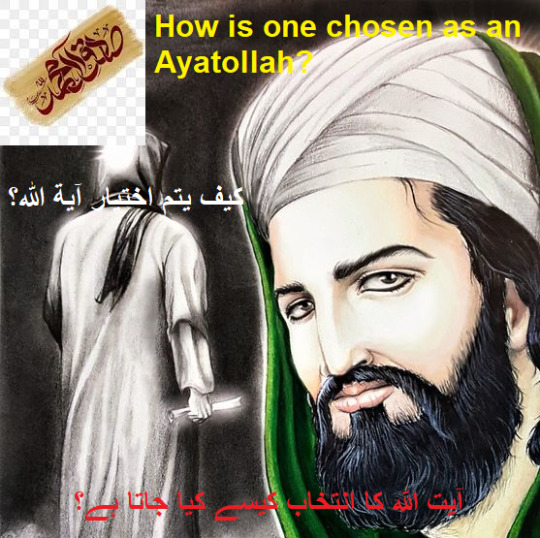
View On WordPress
#Ayatollah#Caliph and Imam#Divine Providence#Fivers--Zaydis#Grand Ayatollah#Hajatolislam#Imam#Ismailis#Majlis faqih#Maraja#Nass#Shiism#Taqlid#Twelvers#Velayat-e-faqih
0 notes
Text
If Iran strikes Tel Aviv I'll become a twelver Shia
150 notes
·
View notes
Note
Is there any belief within Islam on the concept of rebirth or reincarnation?
It's a bit of an obscure belief, because there's not much emphasis on it. But there is the eschatological concept of Raj'a (The return) in Twelver Shi'ism, which is the belief that some of the people who fell or suffered from oppression will rise up/ be reborn to take revenge upon the people who murdered them. They will be lead by Imam Mahdi (atfs), the Twelth Imam.
A group of the oppressors will be brought back and will subsequently be killed by the ones they had oppressed in their previous life.
233 notes
·
View notes
Text
u should be able to torrent beer. i should be able to download a twelver of miller highlife on a P2P file sharing network.
98 notes
·
View notes
Note
so what does 313 supposed to mean 😭
muslim but especially twelver shi'a signifier—eschatologically, the number of soldiers that will be in the army of the mahdi—"may you be one of the 313" is a common invocation—repurposed here theopoetically (with acute recognition of its limits as-such)
10 notes
·
View notes
Text
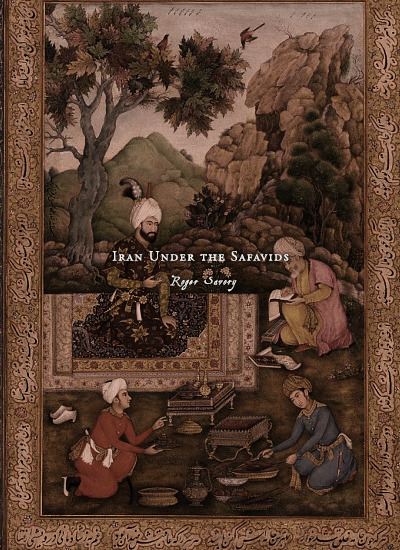
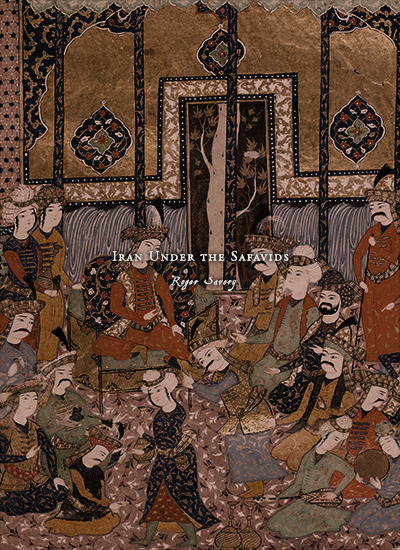
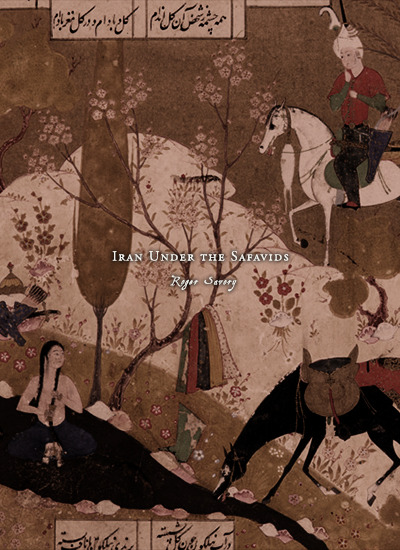
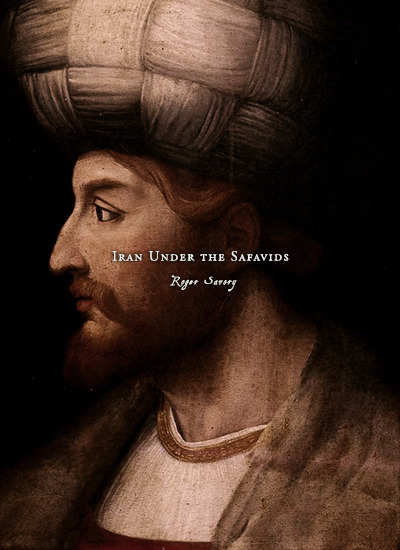
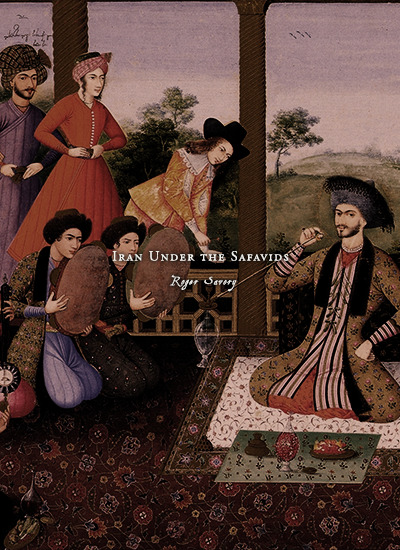
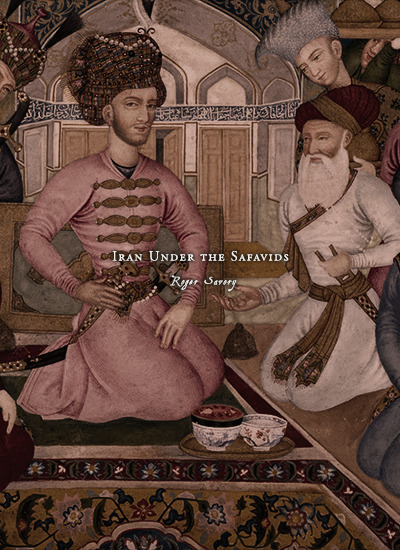
Favorite History Books || Iran Under the Safavids by Roger Savory ★★★★☆
The announcement by Shāh Ismāʿīl at Tabriz in 1501 that the Ithnā ‘Asharī, or “Twelver”, form of Shi‘ism was to be the official religion of the newly established but not yet consolidated Safavid state was the single most important decision taken by Ismāʿīl. As previously noticed, Ithnä ‘Asharī Shi‘ism lay at the heart of one of the bases of the power of the Safavid leaders, namely, their claim to be the representatives on earth of the 12th Imam or Mahdl (if not the Imäm himself) ; the cult of ‘Alī had been inextricably bound up with the development of Iran of Sufism, or Islamic esotericism, from at least the thirteenth century, and the position of murshid-i kämil, or perfect spiritual director, was the second basis of the power of the Safavid leaders; finally, by asserting that ‘Alī’s younger son, Husayn, married the daughter of Yazdigird III, the last of the Sasanid kings, Shī ‘īs had linked the family of ‘Alī with the ancient Iranian monarchical tradition, and the divine right of the Iranian kings, deriving from their possession of the “kingly glory”, was the third basis of the power of the Safavid shahs. Ithnā ‘Asharī Shi‘ism was therefore the most important element in Safavid religious propaganda and political ideology.
… What were the benefits deriving from Ismāʿīl’s action? First, it harnessed the driving power of a dynamic religious ideology in the service of the new state, and thus gave the latter the strength to surmount its initial problems, and the momentum to carry it through the serious crises which faced the state after the death of Shāh Ismāʿīl I in 1524. Second, it clearly differentiated the Safavid state from the Sunnī Ottoman empire, the major power in the Islamic world in the sixteenth century, and thus gave it territorial and political identity. It can, of course, be argued that the establishment of a militant Shī‘ī state on the Ottoman border was an act of provocation which made conflict with the Ottomans inevitable, and to that extent militated against the interests of Iran. It is improbable, however, that Ottoman imperialist aspirations would not have embraced Iran during the sixteenth century, the period of the greatest expansion of the Ottoman empire, whether or not the Safavid revolution had succeeded; the fact that it did succeed gave the Safavid state at least a chance of survival against the most formidable military machine ever seen in the world of Islam. In short, the imposition by the Safavids of Ithnā ‘Asharī Shi’ism as the official religion of the state had the effect of producing a greater awareness of national identity, and thus of creating a stronger and more centralised government.
#litedit#historyedit#safavid dynasty#iranian history#history books#asian history#history#nanshe's graphics
11 notes
·
View notes
Text
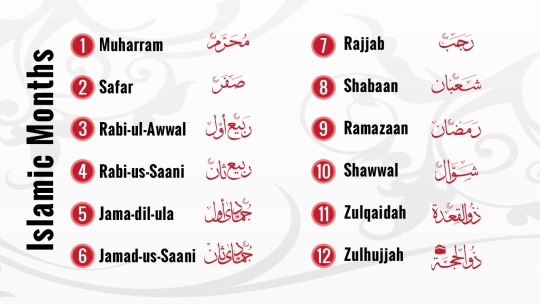
The Islamic calendar differs from the Gregorian calendar because it follows the cycle of the moon rather than the cycle of the sun, but the two calendars have one thing in common: they both have 12 months. The 12 Islamic months each have different meanings, with four of them being sacred months during which fighting and conflict is forbidden.
There is a rich history behind each of the months which is both symbolic and deeply interesting, so if you want to learn more about the meaning of Islamic months, keep reading.
Muharram
The first month in the Islamic calendar is Muharram and it translates from Arabic to ‘forbidden’. Its name relates to the fact that it is the first of the four sacred month during which fighting is haram. It is sacred so that Muslims can return from Hajj without being attacked. There are a number of notable events that took place during Muharram, with the most significant being the Day of Ashura which occurs on the 10th day.
Safar
The second month is called Safar. The translation means ‘void’, and there are two possible reasons for this. Some believe the name comes from the fact Arab homes were empty at this time of year because everyone was out finding and gathering food. In contrast, some people believe that the meaning of the month comes from tales of Arabs looting the homes of their enemies post-battle. Several battles were fought during Safar, and in an effort to cement Islam as a peaceful religion, Allah (SWT) commanded the Muslims move to Medina during Safar to avoid any further conflict.
Rabi al-Awwal
The third month in the Islamic calendar is called Rabi al-Awwal and it is an extremely joyous month. It translates to ‘the first spring’ or ‘to graze’, as this was when cattle began grazing as the earth sprouted with new life. The most prominent event during Rabi al-Awwal is the birth of Prophet Muhammad (PBUH) in 570 A.D. Many Muslims celebrate his birth, but they also grieve for him as it was also during Rabi al-Awwal that he passed away and returned to Allah (SWT) in 632 A.D.
Rabi al-Thani
Rabi al-Thani is the fourth Islamic month in the calendar and means ‘the second spring’. There are a number of different events that took place in this month, but for many Muslims, it is a time for mourning. Fatimah bint Musa, the daughter of the seventh Twelver Shia Imam, Musa al-Kadhim, and Sufi sheikh, Abdul-Qadir Gilani, both died during Rabi al-Thani.
Jumada al-Awwal
Jumada al-Awwal is the fifth month of the year and it translates to ‘the first parched land’. It’s thought that historically Jumada al-Awwal was the first month of summer pre-Islam, but some people believe it means ‘to freeze’ and relates to frozen weather causing parched land.
Jumada al-Thani
The sixth month of the Islamic calendar is Jumada al-Thani which means ‘the last parched land’. It is a significant month within the calendar, but different sects of Muslims celebrate it for different reasons. Fatimah al-Zahra, Prophet Muhammad (PBUH) and Khadijah’s youngest daughter, was born during this month, and she also died during this month. Caliph Abu Bakr passed away during Jumada al-Thani, making this a month of mourning for many.
Rajab
Rajab is the seventh month of the Islamic calendar and translates to ‘respect’ or ‘honour’. It is the second of the sacred months and therefore it is haram to fight or engage in conflict during this time. Rajab is considered Allah’s (SWT) month and is therefore a highly significant time during the year. It’s believed the Creator designated Rajab as a sacred month so that Muslims could complete the voluntary pilgrimage, Umrah, without being attacked.
Sha’ban
The eighth month of the Islamic year is called Sha’ban and is considered the month of Prophet Muhammad (PBUH). It is sometimes referred to as the neglected month because Rajab precedes it and Ramadan comes straight after it, but it is an important month nonetheless. Sha’ban means ‘scattered’ and relates to the time of the year when Arabs would historically scatter to find water. Nowadays, many Muslims use Sha’ban to prepare for Ramadan.
Ramadan
The ninth month of the Islamic calendar is one of the most prominent and is well known outside the Muslim community, too. Ramadan means ‘burning heat’ because it historically fell during a hot time of the year. Muslims observe Ramadan by fasting from dawn to dusk in order to cleanse their minds, bodies, and souls, and to be reminded of the fortune Allah (SWT) has bestowed upon them. Fasting gives Muslims an insight into what their lesser fortunate brothers and sisters go through when hungry.
Shawwal
After Ramadan comes the 10th month of Shawwal, which means ‘raised’. The meaning of the name relates to the fact that female camels are normally pregnant at this time of year. Shawwal is a celebratory month, with Eid al-Fitr taking place from the first to the third day. Lots of food, gifts, and prayers are exchanged during Shawwal, with many praying that their Ramadan is accepted by Allah (SWT).
Dhul al-Qadah
The 11th month of the Islamic calendar is Dhul al-Qadah which means ‘the month of truce’. It is the third sacred month during which Allah (SWT) forbids violence so that Muslims can make their way to Mecca to commence their Hajj safely. It is special because Allah (SWT) said so, and like the other sacred months, good and bad deeds are weighted more heavily at this time.
Dhul Hijjah
The final month of the Islamic year is the holiest and most significant of all. Dhul Hijjah means ‘pilgrimage’ and relates to the fact that Muslims carry out their religious due of Hajj during this month. There are many significant days during this month, including the Day of Arafah when Allah (SWT) finalised Islam. Other key dates include Qurbani, the Festival of Sacrifice that honours Prophet Ibrahim (AS) and his devotion to the Creator. Following Qurbani is Big Eid, also called Eid al-Adha – a time for great celebration and joy. Dhul Hijjah is the fourth and final sacred month so that Muslims can complete Hajj in safety.
#islam#quran#islamic#muslim#islamicquotes#pakistan#islamic group#muslim community#muslim countries#istanbul#Islamic months
13 notes
·
View notes
Note
Didn’t New England’s Puritans also have way more casual sex than you’d think? The Catholic Church was also historically way weaker at enforcing its sexual rulebook than many Christian conservatives like to admit, to the point where even a few Popes had crazy sex lives. If anything Protestantism as a concept probably went well with sexual hedonism even if it was probably sometimes the R. Kelly variety.
Idk much about the history of sexuality in colonial New England but it is true that an important factor people neglect a lot when it comes to religious history is accounting for people being huge hypocrites (eg; Persia had a thriving wine culture despite Islam not because Twelver Shia tolerates alcohol but because people just openly flouted the prohibition and likewise Venetian nobles that openly had concubines werent adhering to a special Catholic sect that allowed it but because they just dgaf)
112 notes
·
View notes
Note
. . . ( GAREN ANGELS ) — ," send me a song / playlist, mood board, or blog and i will make an oc!
I love you baby by Frank sinatra
ARTHUR KAIN — rich kid that got held back in school and falls in love with a grade twelver
3 notes
·
View notes
Note
Are you ismaili
No, I’m a Twelver. But as I study Islamic history, I enjoy researching various different groups. The early Fatimids and the way their revolution can compare to that of the Abbasids has led me to write about early Fatimid history to a small amount.
2 notes
·
View notes
Note
In your opinion, please rate thg movie series with 1-5 scale.
(1 = I hate it, 3=neutral, 5 = I love it.)
1.The Hunger Games :
Things that you like :
Things that you don't like :
2.Cathing Fire :
Things that you like :
Things that you don't like :
3.Mockingjay
Movie 1 :
Movie 2 :
Things that you like :
Things that you don't like :
Thank you 😊
@curiousnonny
The hunger games: 2/5. This is the only one I’ve watched.
things I liked: Black Cinna! Good for him! Their depiction of the cornucopia was interesting, I wouldn’t have envisioned it that way. I also REALLY like the scene in district eleven. I’ve spoken about this before, but that scene is a peek into what the movie could have been. The book was tied to Katniss’s perspective, but in film you can show so much more that the tributes wouldn’t get to see. I like Caesar Flickerman.
things I didn’t like: why. Why aren’t Katniss and Peeta POC. Why are the district twelvers white. That’s not a thing. 12 is supposed to be such a melting pot that practically no one is without mixed ancestry. Also why isn’t Peeta an amputee? He loses his leg? ??? Also. Did they need to do the careers so dirty? They aren’t the villains. They’re scared kids. They’re the same as Rue and Katniss and Peeta and all the rest, they may have volunteered to be there but they didn’t choose this, society chose this, their parents chose this, they aren’t attack dogs, (well.) they’re people.
3 notes
·
View notes
Text
I'm back
I deleted this acc shortly before my 16th birthday because I realized I was being straight up groomed on here, and since then my mental health has dramatically improved. I'm back now mostly to escape Elon
I'm a hs senior on Dena'ina land, but planning on going to school in either Flathead, Kalapuya or Nisqually land. I'm a decolonial Marxist meaning I have class solidarity but I believe colonialism is the primary contradiction in settler countries and should be resolved before the class contradiction. I'm interested in Twelver Shia Islam and might fully convert in college. My main passion though is human language; my current plan is an associate's in linguistics and then a master's in translation & interpretation with a focus on Russian and Arabic. My language learning plan for this semester is to just have fun with Pashto until I start my full courseload this fall
2 notes
·
View notes